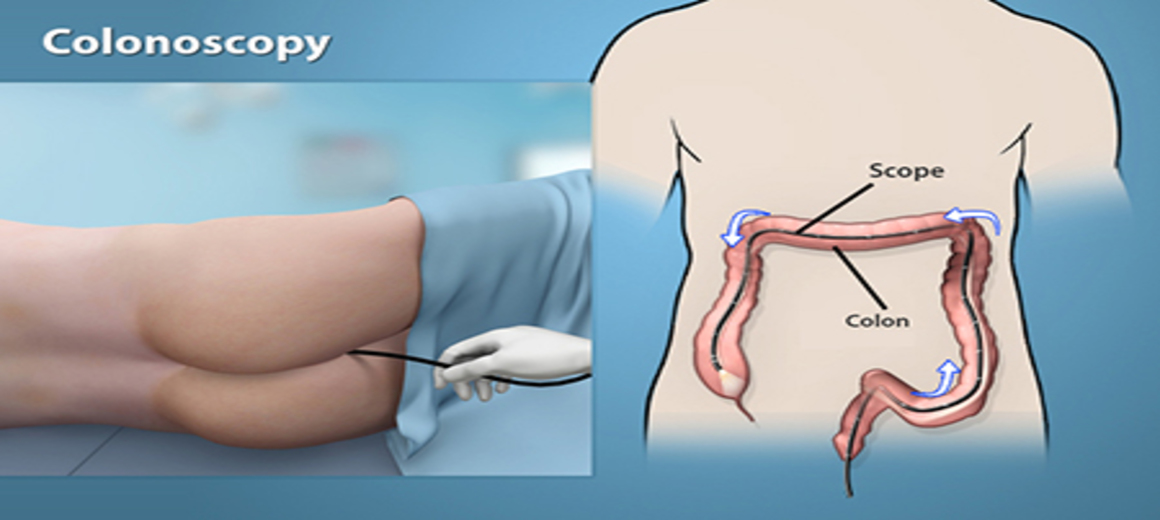
What is Colonoscopy?
A colonoscopy is an exam used to detect changes or abnormalities in the large intestine (colon) and rectum.
During a colonoscopy, a long, flexible tube (colonoscope) is inserted into the rectum. A tiny video camera at the tip of the tube allows the doctor to view the inside of the entire colon.
If necessary, polyps or other types of abnormal tissue can be removed through the scope during a colonoscopy. Tissue samples (biopsies) can be taken during a colonoscopy as well.
Reason of Colonoscopy
1.Investigate intestinal signs and symptoms.
A colonoscopy can help your doctor to explore possible causes of abdominal pain, rectal bleeding, chronic constipation, chronic diarrhea and other intestinal problems.
1.Screen for colon cancer.
2.Look for polyps.
How to prepare for test?
1.You can have only clear liquids the day before your test. Avoid red liquids, which can be confused with blood during the colonoscopy. Do not eat or drink anything after midnight the night before your test.
2.Arrange for a responsible adult to drive you home and stay with you after your test.
3.Please consult your doctor if you are taking any Heart medication / Over-the-counter medication / Diabetes medication
What will happen during the tests?
1.You will lie on your side with your knees drawn toward your chest so you are more comfortable.
2.Your blood pressure, pulse, breathing, and blood oxygen levels will be monitired during the test.
3.You will receive a medication through IV to help you relax.
4.The doctor will insert a long tube called a colonoscope into your rectum and move it through your colon. Dr. will fill your colon with air. This will help the doctor get a better view. The air may give you some discomfort or pressure. This feeling is normal and should go away soon after the test.
A colonoscopy typically takes about 20 minutes to an hour.
After the examination
1.After the exam, it takes about an hour to begin to recover from the sedative. You’ll need someone to take you home because it can take up to a day for the full effects of the sedative to wear off. Don’t drive or go back to work for the rest of the day.
2.If your doctor removed a polyp during your colonoscopy, you may be advised to eat a special diet temporarily.
3.You may feel bloated or pass gas for a few hours after the exam, as you clear the air from your colon. Walking may help relieve any discomfort.
4.You may also notice a small amount of blood with your first bowel movement after the exam. Usually this isn’t cause for alarm. Consult your doctor if you continue to pass blood or blood clots or if you have persistent abdominal pain or a fever of 100 F (37.8 C) or higher.
FAQs:
Is colonoscopy painful? Will I be sedated?
1.No, colonoscopy is usually not painful! Almost all colonoscopies can be performed using “intravenous sedation” in which you are very drowsy, but comfortable and still breathing on your own.
Are there any complications from colonoscopy?
1.Bloating and distension typically occur for about an hour after the exam until the air is expelled. Serious risks with colonoscopy, however, are very uncommon. One such risk is excessive bleeding, especially with the removal of a large polyp. In rare instances, a tear in the lining of the colon can occur. These complications may require hospitalization and, rarely, surgery. Quite uncommonly a diagnostic error or oversight may occur.
2.Due to the mild sedation, the patient should not drive or operate machinery following the exam. For this reason, someone should be available to drive the patient home.
